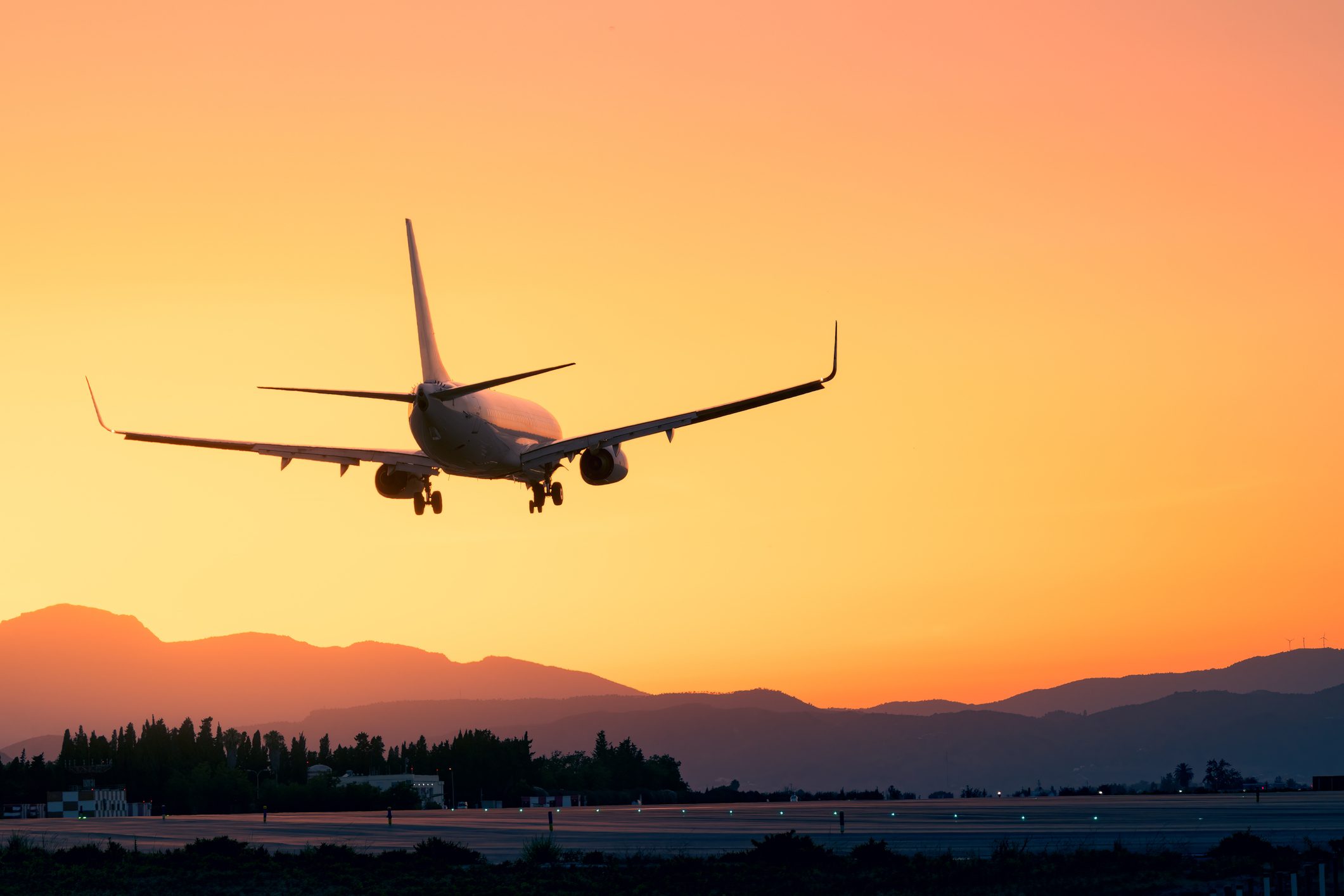Travel jitters are normal in even the best of times. Here, a doctor who helps patients manage phobia and anxiety offers ways to keep calm en route.

Afraid To Fly? An Expert Doctor’s 10 Strategies To Keep Calm When You Travel

If you miss the days when one airline’s motto was “Come fly the friendly skies,” it’s safe to say there’s widespread nostalgia for a time when public safety in transportation wasn’t politicized.
Americans are uneasy after several unfortunate aviation incidents in January 2025. The National Safety Council reminds us that the odds of perishing in a plane crash are roughly 1 in 11 million, compared to the 1% chance of car accident fatality—in fact, the council says, in 2023, “Major airlines (scheduled service) experienced no onboard fatalities and had a fatal accident rate of 0.0 per 100,000 flight hours.”
Despite these reassuring statistics, many travelers struggle with a fear of flying that reaches new heights after an incident is reported. Ahead, Dr. Harris Stratyner, PhD, a New York City-based psychologist who treats anxiety and phobias, shares strategies to help you overcome an aversion to flying no matter how seasoned a traveler you are.
Gradual Exposure to Flying
For individuals with extreme uncertainty about flying, “Start by watching flight videos,” Dr. Stratyner says, “then visit an airport, and eventually take short flights to build confidence.”
Some airlines offer fear-of-flying courses with simulated flight experiences.
Talk to the Crew
Pilots and flight attendants are trained to handle nervous passengers and often go out of their way to reassure you. Let them know you’re anxious, and they can provide tips or additional support. Sometimes, having someone acknowledge your fear can make you feel more in control. Knowing there are professionals at hand can instill trust in the process.

Practice Relaxation Techniques
Dr. Stratyner suggests deep breathing: Try the 4-7-8 breathing technique (inhale for 4 seconds, hold for 7, exhale for 8). If that feels like too much, box breathing can be calming, too.
Also, consider progressive muscle relaxation, tensing and relaxing different muscle groups, or try meditation and be nonjudgmental when thoughts or observations occur.
Understand the Science of Flight
Knowledge can be incredibly empowering, Dr. Stratyner says. Airplanes are designed for safety, and modern aviation technology is highly advanced. Understanding flight mechanics, like how a plane generates lift and why turbulence is harmless, can help alleviate anxiety.

Avoid Stimulants Before the Flight
Dr. Stratyner says caffeine and sugar can heighten your anxiety levels, making it harder to stay calm during the flight. Opt for herbal teas or water instead of coffee or soda.
Avoiding alcohol as well can help maintain a clear mind and prevent a hangover, which could worsen your nervousness. Also, eat healthy and choose pre-flight foods wisely.
Bring Distractions
Prepare entertainment, like movies, books, or podcasts, to distract you during the flight. Keeping your mind busy can prevent you from focusing on your fear and make the time pass faster and make the experience less daunting. The more immersed you are in something else, the less you’ll think about the flight—and if you enjoy it, you might associate flying with more pleasant feelings.
Channel Your Inner Pilot
Watch cockpit videos or flight simulations to help get a picture for how the pilot and co-pilot manage control. Understanding what pilots do can make the experience less mysterious.

Listen to a Guided Hypnosis or Relaxation Track
Hypnosis apps or YouTube videos can help you change the associations you make with flying, allowing you to associate flights with relaxation instead of fear.
Travel With a Supportive Companion
No surprise: Having a trusted friend or family member with you can provide emotional support and reassurance, Dr. Stratyner says. Even if you can’t bring a buddy along, sharing your fear with someone you trust and who understands can make the experience feel less isolating. They can help redirect your attention and provide comfort when you start to feel anxious. A comforting presence can reduce the sense of vulnerability you may feel.
Focus on the Destination
Instead of focusing on the journey, shift your attention to the excitement of where you’re going. Visualize the fun or relaxing time or a great meal you’ll have once you land, even if what you’re anticipating is dinner with colleagues. This shift in perspective can make the flight feel more like a necessary step rather than an overwhelming hurdle. Keeping your goal in mind helps keep fear at bay.
For daily wellness updates, subscribe to The Healthy by Reader’s Digest newsletter and follow The Healthy on Facebook and Instagram. Keep reading:
- 7 Lifesaving First Aid Items You Should Take on Vacation, Say Doctors & a Paramedic
- Experts Just Named the 8 Best Places to Go on Vacation That Zap Stress (Even After You Get Home)
- I Travel Up to 150 Days of the Year—Here Are the 12 Rules That Keep Me Healthy
- New Study: Chronic Stress Could Age This Body Part 33% Faster


















